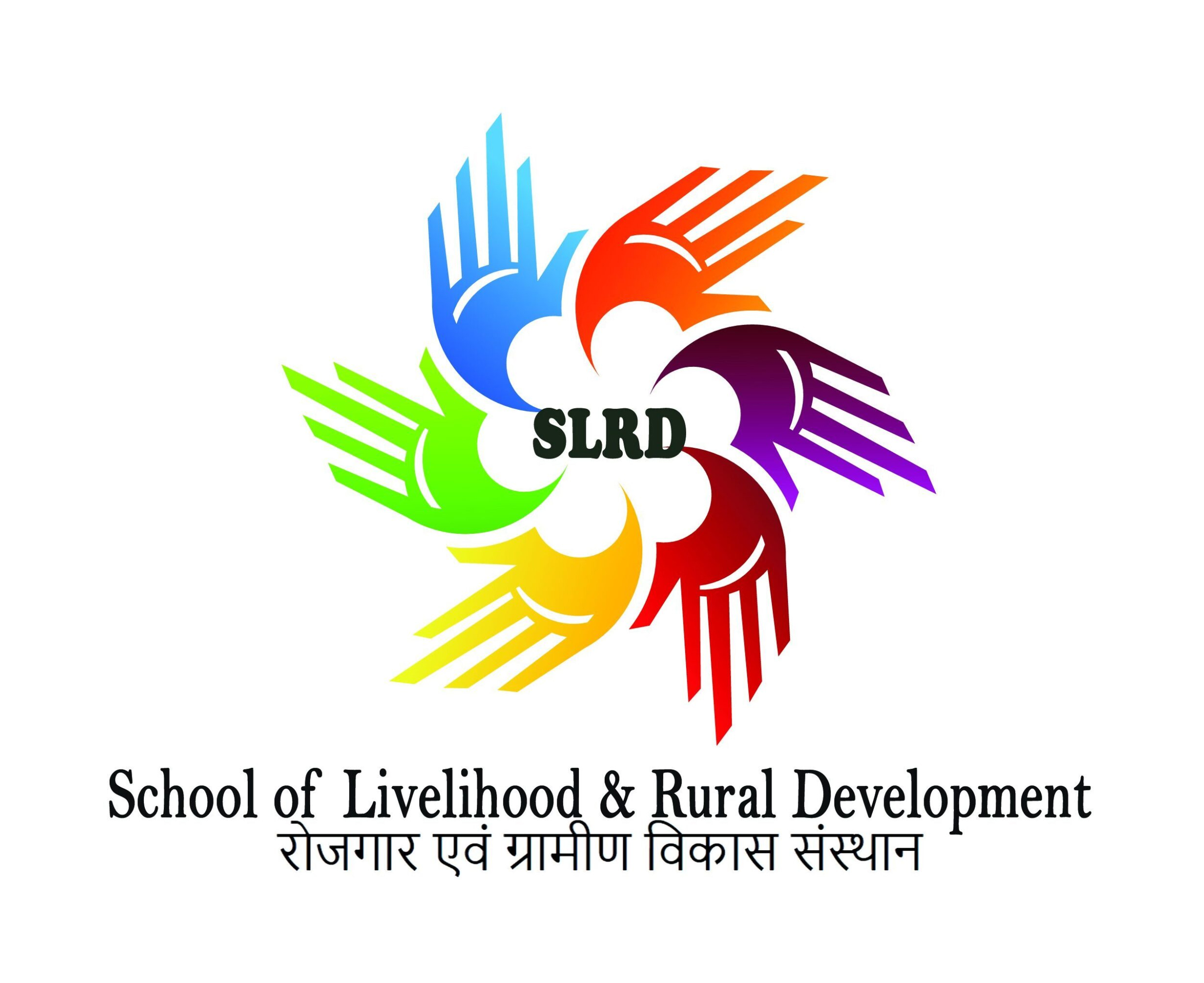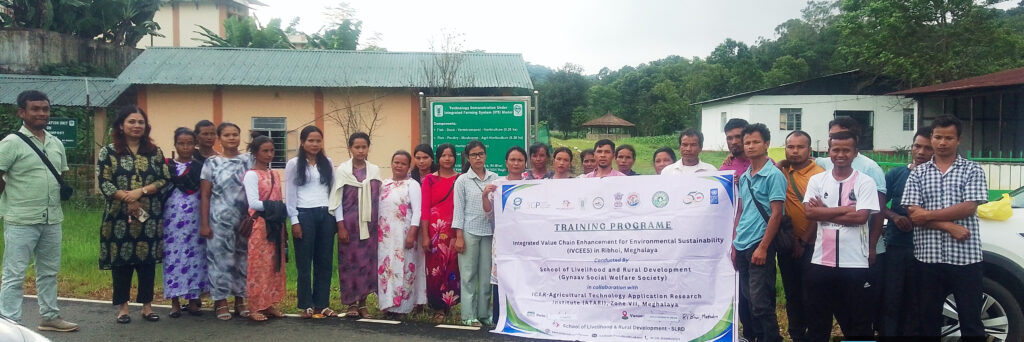
Umiam, Ri-Bhoi (August 26–29, 2025):
The School of Livelihood and Rural Development (SLRD), in collaboration with ICAR-KVK, Umiam, successfully organized a four-day workshop on Crop Diversification. The programme aimed to equip farmers with scientific knowledge and hands-on skills in sustainable farming, animal husbandry, and integrated farming systems—practices essential for boosting productivity, ensuring food security, and building climate resilience in Meghalaya.
Day 1: Sustainable Crop Management
The workshop began with sessions led by Dr. Meghna Sarma, SMS (Agronomy), ICAR-KVK, who highlighted the importance of intercropping millets, paddy, and maize with legumes and oilseeds to improve soil fertility and reduce pest incidence. Farmers also learned about pest management strategies for paddy and maize, covering common threats such as stem borers and leaf folders.
A field demonstration allowed farmers to observe intercropping, compost use, spacing, and pest identification practices directly in ICAR-KVK’s fields.
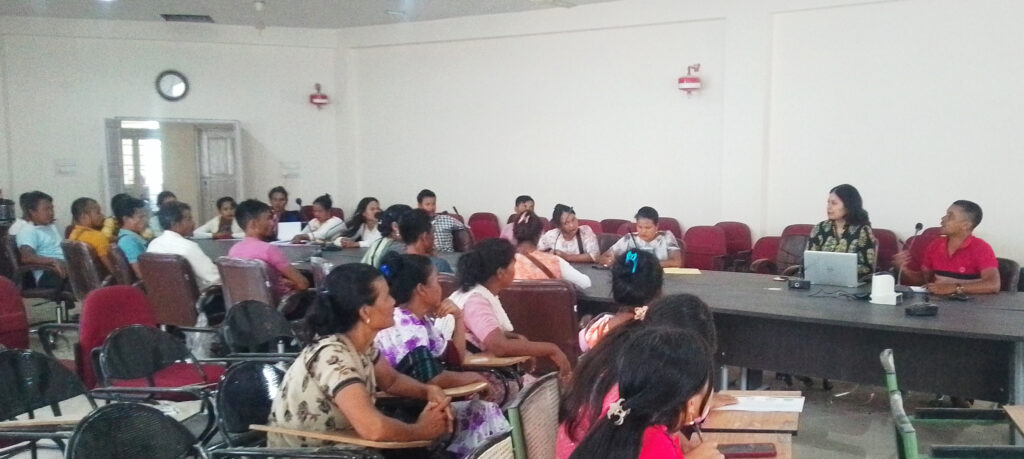
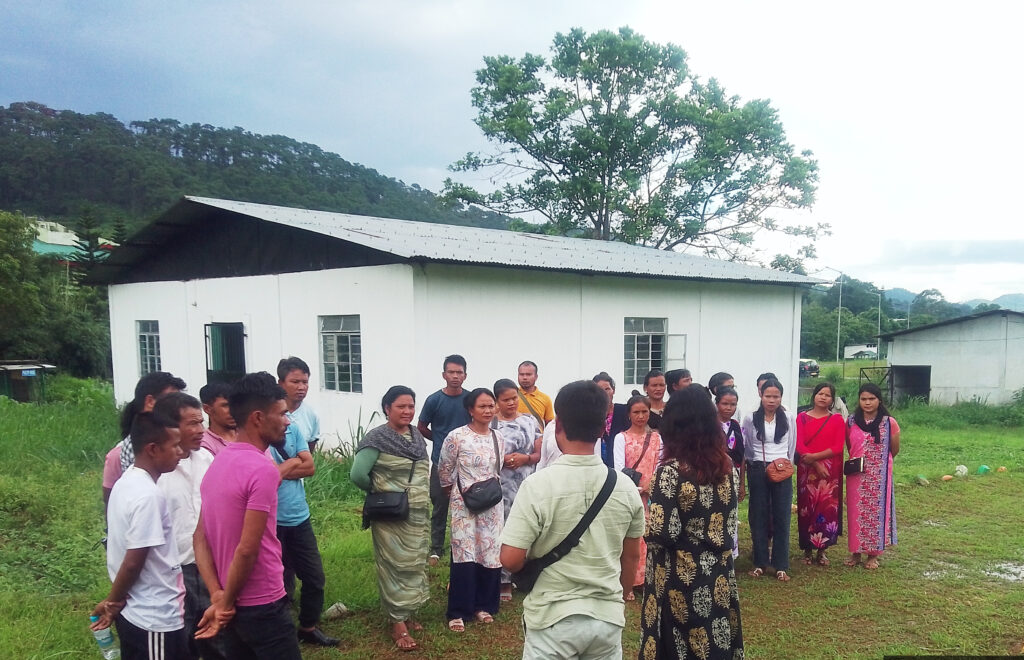
Day 2: Animal Sciences – Piggery and Poultry
The second day focused on animal husbandry, led by Dr. Moloy Sharma, SMS (Animal Science), ICAR-KVK.
He discussed profitable pig farming practices, including breeding, feeding, and housing, along with disease prevention methods such as African swine fever management.
A short documentary on pig rearing provided practical insights, followed by a field visit to the ICAR-NEH poultry farm, where farmers learned about housing, vaccination, and management of hybrid breeds like Kadaknath, Srinidhi, and Vanaraja.
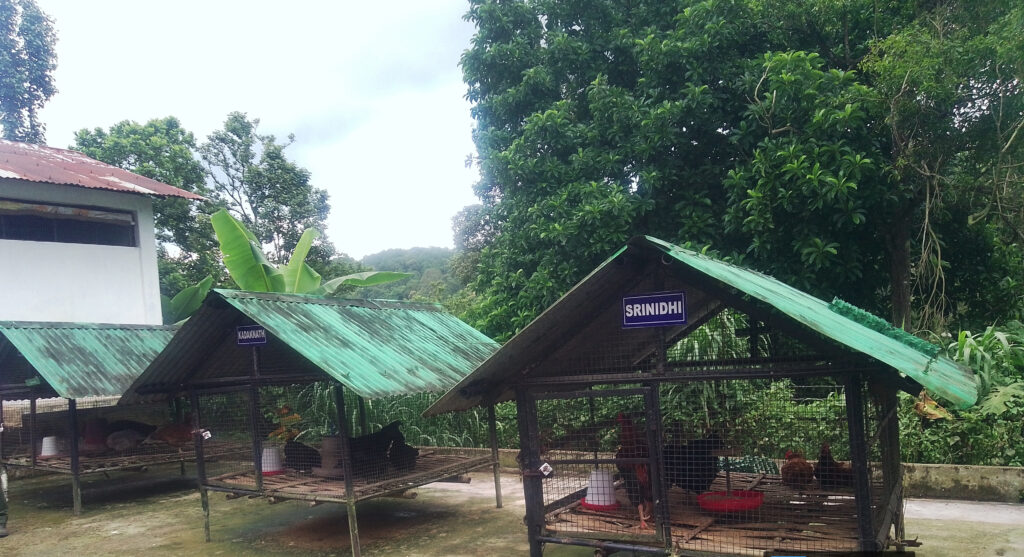

Day 3: Crop Diversification and Integrated Farming Systems
Dr. Mokidul Islam, Principal Scientist (Agronomy), ICAR-KVK, led sessions on advanced crop diversification techniques such as mixed cropping, relay cropping, and crop rotation for soil fertility and sustainability.
He also introduced the Integrated Farming System (IFS), highlighting its potential for year-round income and efficient use of farm resources.
A field demonstration at the ICAR-KVK multiplication unit farm gave participants exposure to nursery management, crop multiplication, and polyhouse technologies.
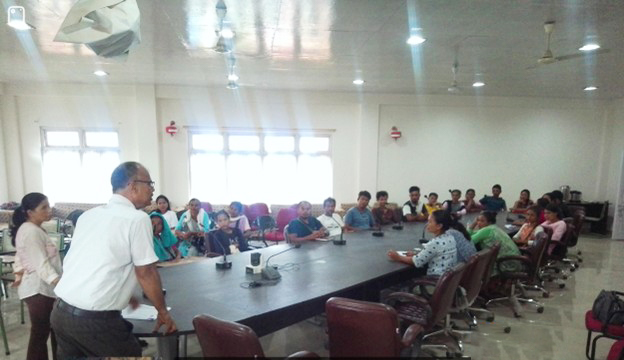
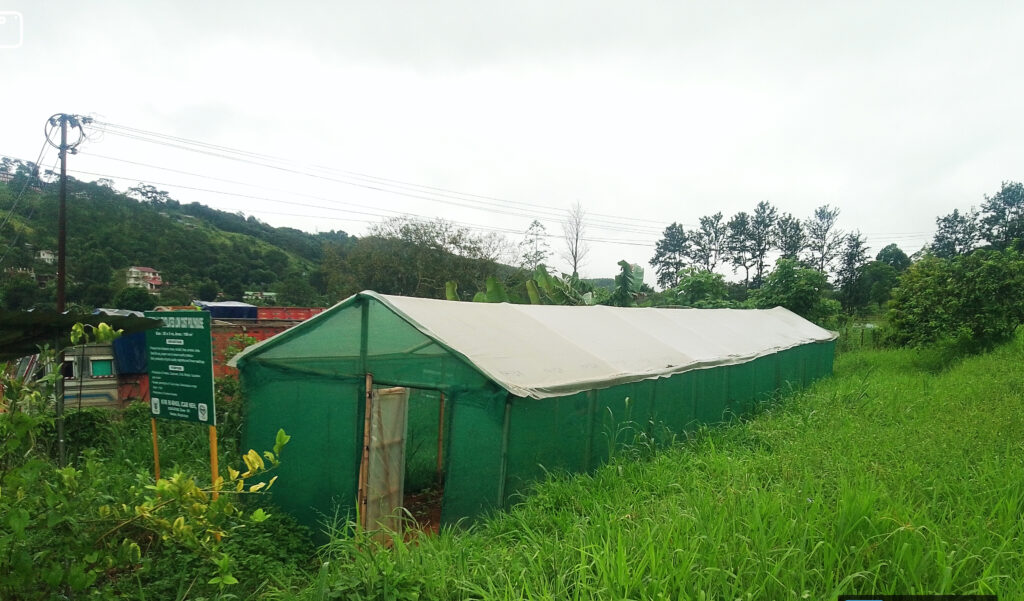
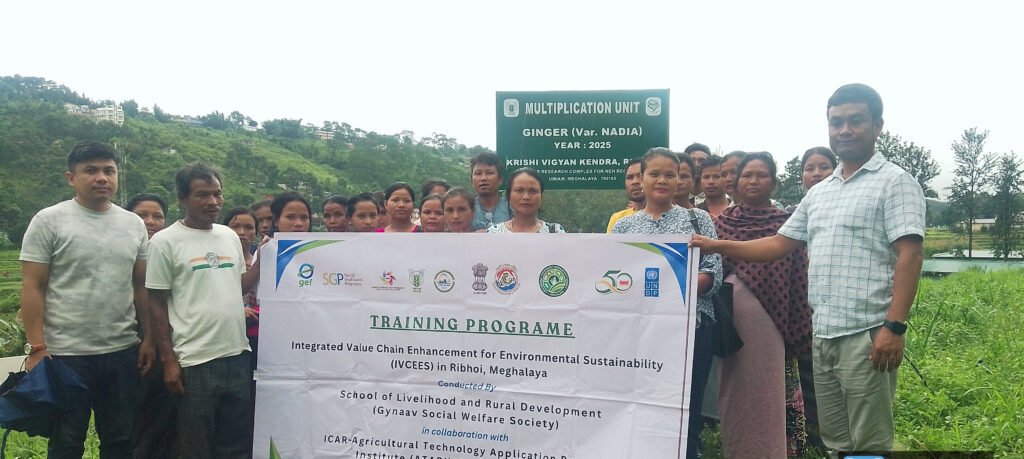
Day 4: Paddy–Fish Integration and Integrated Models
The final day, facilitated by Mr. Bankitkupar Mukhim, SMS (Fisheries), ICAR-KVK, focused on paddy–fish farming, where rice cultivation is combined with fish rearing to optimize land and water use. He also explained integrated models where fish, poultry, and swans contribute to pest control, nutrient cycling, and higher productivity.
During the field visit to the Integrated Farming System site, farmers saw firsthand how rice, fish, and swans can be successfully integrated for multiple benefits. Certificates of participation were awarded at the end of the programme.
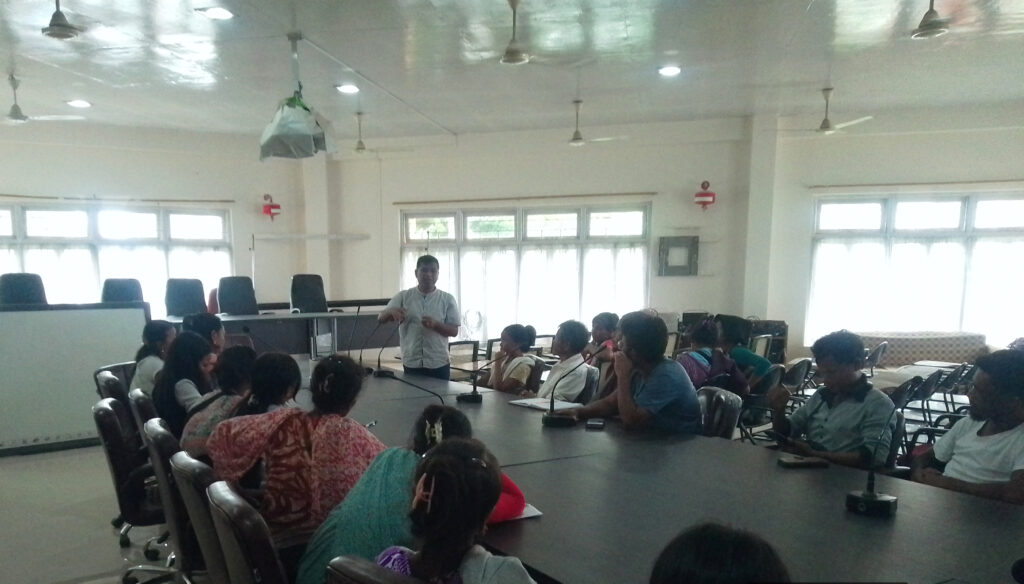
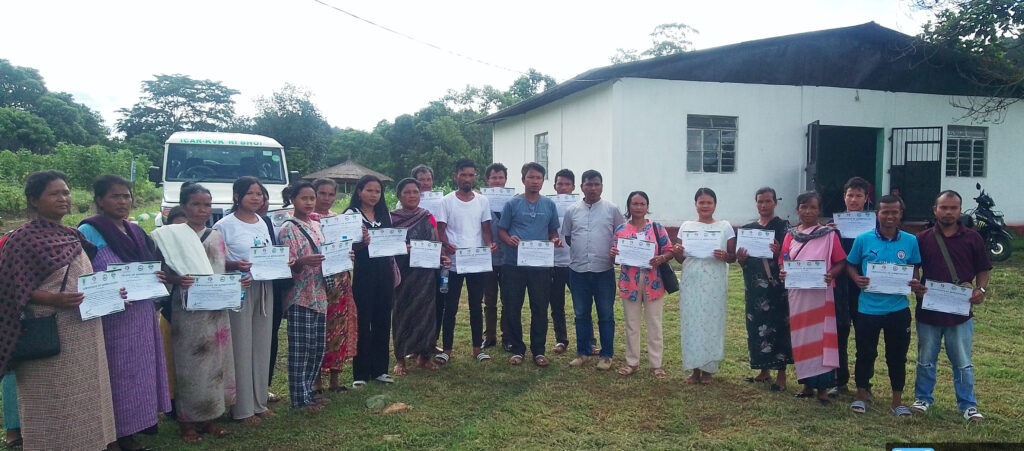
Participation and Outcomes
The workshop was attended by 29 farmers from THAD FPO, Ri-Bhoi district, including both men and women. By the end of the training:
- Farmers gained practical and theoretical knowledge on crop diversification, animal husbandry, and integrated farming systems.
- They developed skills in intercropping, crop rotation, and pest management for millets, paddy, and maize.
- They learned about profitable livestock enterprises like piggery and poultry, and improved breeds for better productivity.
- They were introduced to paddy–fish farming and integrated models, boosting awareness of sustainable, income-generating practices.
Conclusion
The four-day training blended classroom learning with field demonstrations, creating a rich and practical experience for the farmers of Ri-Bhoi. By exposing them to innovative farming techniques and integrated systems, the workshop strengthened their confidence and capacity to adopt climate-smart, diversified, and sustainable farming practices in their own fields.
